Gaming tests (GTX 980)
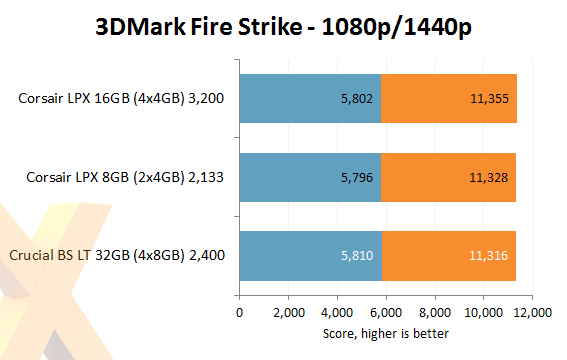
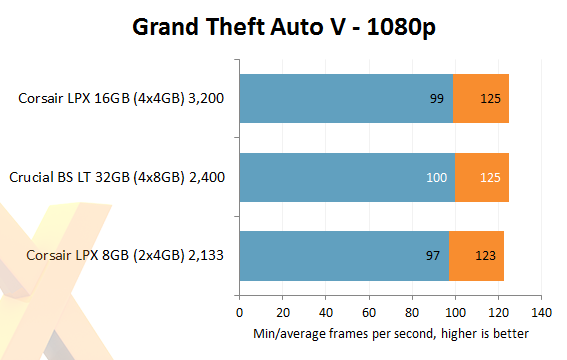
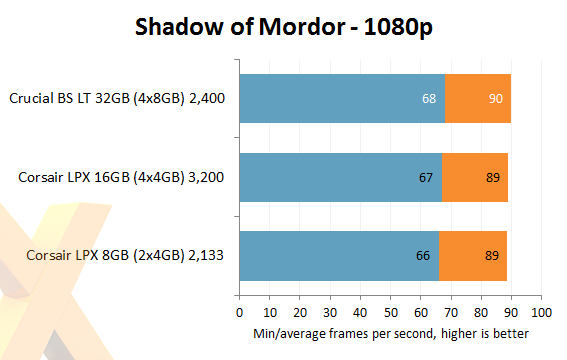
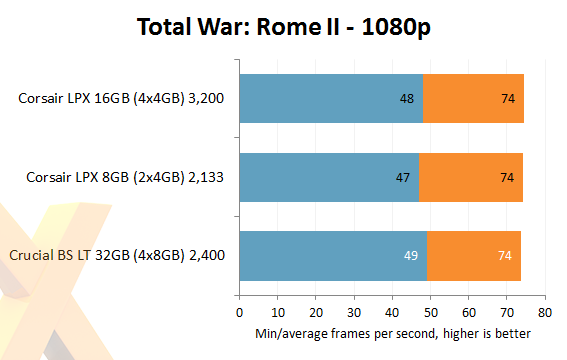
The picture is broadly similar in benchmarks with a proper GPU such as the GeForce GTX 980. It's the quality of the GPU, more than the memory or CPU, that predicates in-game performance.
Memory matters
We've established thus far that having 32GB of system memory doesn't pay obvious dividends when running applications in isolation. What's needed, therefore, is a way of taxing the system such that an excessive amount of RAM is used. This can be done manually by opening up all manner of applications and running multiple programs at once, but such an approach is not consistent with respect to good benchmark practice..
Another way is to use a RAM-stressing benchmark such as the Photoshop Speed Test, which is purposely designed to make the most use from bags of system memory and an SSD scratch disk. The test involves making a 7,000-by-5,000-pixel image, duplicating, adding numerous transformations, layers, blurs and fills. The sheer size puts an onus on holding lots of information in local memory.
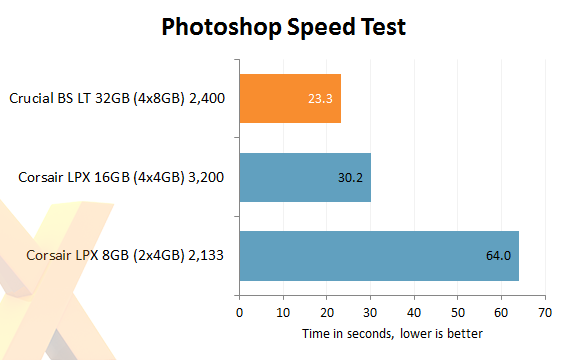
The upshot is that, in this case, memory capacity is far more important than speed. The test peaks out at around 23GB on our test system, thus causing the 16GB kit to go back and forth from a scratch SK hynix SL301 500GB SSD disk. We'll readily admit that this benchmark is designed to show the improvements of having more than 16GB of memory, specifically so, but if you can use it, more RAM is almost always better.









